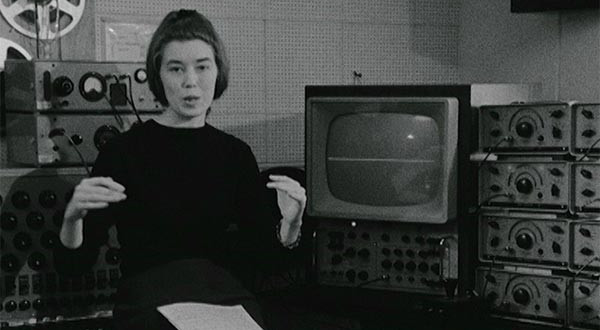
Delia Derbyshire was an English composer and musician who is best known for her phenomenal work with the BBC Radiophonic Workshop.
Delia Ann Derbyshire was born on May 5, 1937 in Coventry, England. After the notorious Coventry Raids of World War II, Derbyshire and her family moved to Lancashire, where she spent most of her childhood. As a child, Derbyshire was exceptionally intelligent and by the age of four, she was already teaching her friends at school how to read and write. After studying at the Barr’s Hill Grammar School, she was accepted into both Oxford and Cambridge, but she chose to go to Cambridge as she won a scholarship to study mathematics at the Girton College. She graduated from Cambridge in 1959 with a degree in mathematics and music. She also obtained the LRAM diploma from the Royal Academy of Music.
Derbyshire was relatively unhappy with her progress in mathematics and she decided to try her hand at music. She first applied to Decca Records, where she was turned down as they “did not employ women at their recording studios”. She then worked for the United Nations at Geneva, teaching mathematics and piano to the children of international diplomats.
Derbyshire earned her big break when she joined the BBC as a trainee assistant studio manager. She worked on ‘Record Review’ with other critics and made quite an impression when she analyzed old records with fabulous insight. Some reports state that she could pinpoint the exact location of any instrument in a recording when she analyzed them. Derbyshire was then hired by the BBC Radiophonic Workshop at Maida Vale, from where she changed history.
At the workshop, Derbyshire was almost instantaneously famous after she proposed an electronic rendition of Ron Grainer’s famous “Doctor Who” theme. Her rendition was also chosen for the Television Series and it became one of the first electronically produced themes to be used on Television. Grainer himself was astounded by the rendition, so much so that he asked Derbyshire, “Did I Really Write This?” Grainer even tried befitting Derbyshire with co-composer credits for the theme but he could not do so due to BBC’s policies.
Derbyshire and her fellow colleagues from the Workshop, including Brain Hodgson and Peter Zinovieff (who is now known as one of the co-founders of the incredibly popular ‘Electronic Music Studios’ or EMS), set up an organization titled ‘Unit Delta Plus’ in 1966. The organization aimed to promote electronic music. However, the organization faced numerous difficulties and it had to be disbanded. Derbyshire then went on to work with Hodgson again for another studio, ‘Kaleidophon’. Another electronic musician, David Vorhaus, was also involved in the project, which ultimately aimed to create a studio that specifically catered to the needs to electronic music. The trio ultimately went on to form a band called ‘White Noise’, which released its debut album, “An Electric Storm” through Kaleidophon.
Derbyshire took on a number of projects that weren’t necessarily endorsed by BBC. Through ‘White Noise’ Derbyshire was able to contribute to the Standard Music Library. She also worked with Guy Woolfenden for Peter Hall’s rendition of ‘Macbeth’. She also contributed to the soundtrack for Peter Hall’s “Work is a four letter word” and John Hough’s “The Legend of Hell House”.
Delia Derbyshire died on July 3, 2001 due to Renal Failure. She is remembered today as one of the pioneers of electronic music.